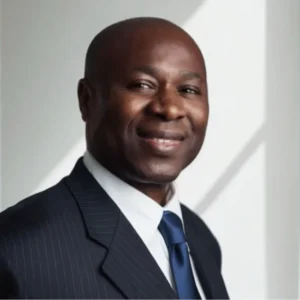Navigating Ghana’s Roads: An Inside Look at Highway Patrol Challenges and Solutions
A recent visit to the Accra-Aflao weight station and the Highway Patrol unit offered a candid glimpse into the significant challenges faced by our dedicated police officers in maintaining road safety and enforcing traffic regulations. The persistent issue of overloaded trucks, which severely damage our road infrastructure, prompted this closer look into the operational realities on the ground.
Key Observations from the Field
Contents
During my interaction with the young police officers, several critical insights emerged regarding their daily struggles and the systemic issues hindering their effectiveness:
- Outdated Equipment: The patrol truck assigned to this particular unit on the Aflao road has not been replaced since the tenure of former President Atta Mills, highlighting a severe lack of investment in essential operational tools.
- Lack of Basic Amenities: Compounding the equipment issue, the patrol vehicle lacks fundamental amenities such as air conditioning and a radio, making long hours of duty under challenging conditions even more arduous.
- Exploitation of ECOWAS Stickers: Officers have observed a concerning trend: a spike in trucks designed to carry livestock, but often found empty of animals. These trucks frequently display ECOWAS stickers, which, under current interpretations, often exempt them from thorough searches, potentially facilitating illicit activities.
- Ineffective Weigh Stations: The current weigh station system proves largely ineffective. Trucks often leave harbors with legally compliant weights but are subsequently overloaded en route. Drivers then gamble on either paying increased fines or resorting to bribery. Even when caught, intervention from “big men” frequently overrides enforcement, allowing overloaded vehicles to pass without consequence, especially for high-value cargo like excavators.
- Political Interference in Arrests: Instances of political interference undermine law enforcement efforts. A case was cited where individuals arrested for disturbing the peace were released following the intervention of a District Chief Executive (DCE). In a subsequent, more dangerous incident involving armed culprits, officers faced the situation without such “big man” intervention, resulting in fatalities. This highlights a clear double standard and risk.
- Vandalism of Infrastructure: Efforts to install height barriers to prevent oversized trucks have been repeatedly thwarted by thieves who steal the metal for scrap. This indicates a need for constant police presence near such critical infrastructure to ensure its protection and functionality.
Challenges to Professionalism and Morale
My overall impression is that these officers face immense pressure and resource constraints, making it exceedingly difficult to maintain professional standards. The perceived influence of “big men” creates an environment where officers feel disempowered and vulnerable to retaliation for simply doing their job. This lack of support and the pervasive nature of external influence significantly impact morale and operational effectiveness.
Proposed Solutions from the Frontline
Intriguingly, the officers themselves offered a set of thoughtful solutions, reflecting their deep understanding of the systemic issues:
- Reorganize Highway Patrol into a “State Police” Unit: They propose establishing a distinct “State Police” unit solely dedicated to patrolling highways and major inter-city roads, separate from the general police force.
- Report to Military Police: This new unit, they suggest, should report directly to the Military Police rather than the conventional police hierarchy, which they believe is more susceptible to undue influence from powerful individuals.
- Financial Autonomy and Incentives: Crucially, they advocate for this unit to have the authority to issue fines, with a significant portion (e.g., half) of the collected revenue allocated to their salaries, pensions, and work disability benefits. This model aims to provide financial independence, reduce the incentive for corruption, and ensure better welfare for officers injured in the line of duty.
These proposals from the very individuals on the frontline offer a compelling perspective on how to address long-standing issues within road safety enforcement and the broader challenges of governance and ethical conduct in public service. Implementing such reforms could significantly bolster the rule of law and enhance the safety and integrity of Ghana’s road network.
![NBOSI-01[1] NBOSI-01[1]](https://cloudypos.com/nbosi/wp-content/uploads/sites/59/elementor/thumbs/NBOSI-011-rc3u2ljhmnhjs84d8kcrtfc3b1mya82rhqxld85wl8.png)








